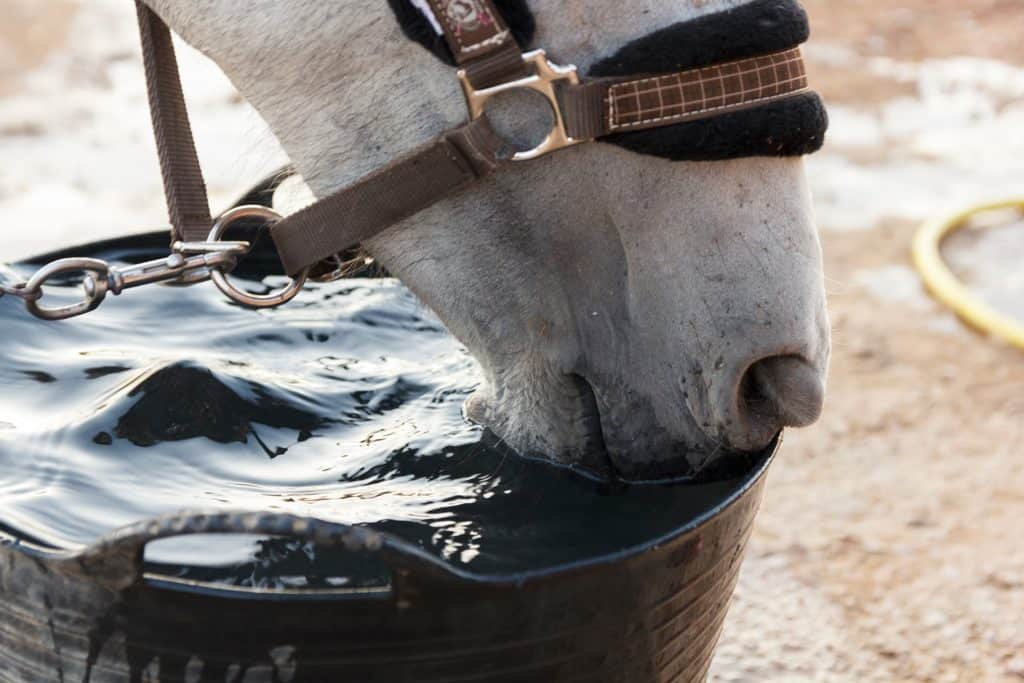Effects of Electrolyte Supplementation on Horses in Hot Weather

High-dose electrolyte supplementation can further increase water intake, especially when horses are in heavy work, but little research shows whether horses in light to moderate work also need electrolyte supplementation, said Alyson Snyder, MS, of Middle Tennessee State University, in Murfreesboro, during her presentation at the 2023 Equine Science Society’s Symposium, held June 6-9 in Grapevine, Texas.
Snyder and her team completed a five-day study in mid-September 2022, when Tennessee was experiencing record high temperatures that peaked at 120 F. They used 11 stock-type horses that were acclimated to a normal workload of riding classes, supplementing five treatment group horses with a low dose of sodium chloride and potassium chloride and adding sugar to the six control horses’ feed.
The researchers took morning venous blood samples from each horse to measure their blood glucose levels and sent plasma samples to Cornell University’s laboratory for assessment. Three researchers checked the levels of the horses’ water buckets regularly and filled them to keep the results consistent, said Snyder.
“As temperatures increased, so did water intake, but that was to be expected,” said Snyder. “The riders and instructors reported that the control group of horses (which they were blinded to) were not perceived to fatigue faster in morning and midday rides than those in the treatment group.” However, they did not see a difference in cooldown time between the treatment and control groups and did not observe any effects on plasma concentrations of the supplemented horses.
Regardless of their grouping, all horses consumed more water, which contrasts previous study results; however, this could be a result of the dose or administration times, added Snyder. On the hottest day of the study, all horses had higher perceived sweat amounts, cooldown times, and water intake, which Snyder said was to be expected. “Our results showed that horses in light to moderate exercise might not need low-dose electrolytes,” she said.

Related Articles
Stay on top of the most recent Horse Health news with


















